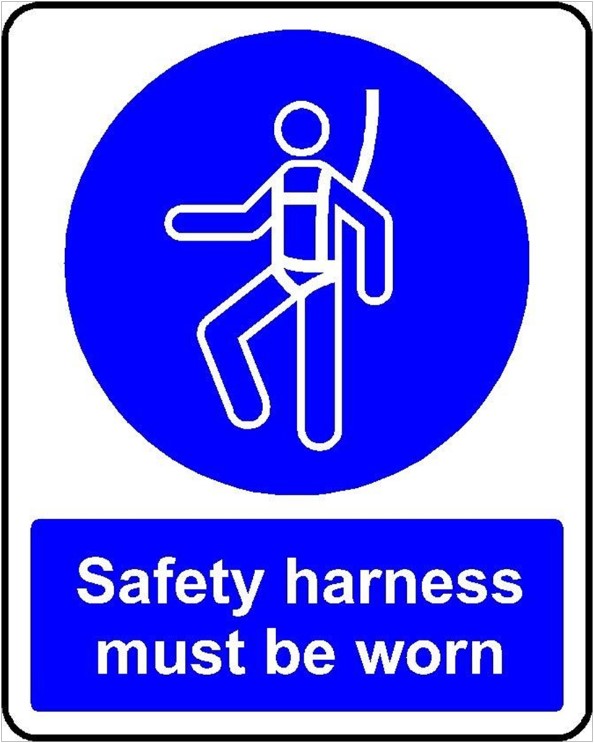Construction Skills
Access Equipment
Corridans offer training and assessments in both scissor list and booms. These can be conducted on our site at Scunthorpe or we can come to your site if you have suitable facilities available.
Our courses are designed for all categories of Mobile Elevated Work Platforms (MEWPs) including all types of scissor lifts and cherry pickers.
Training on the safe and efficient use of access equipment can be tailored to suit all industry sectors and experience levels.
Recomended pre-qualifications:Harness and Fall Arrest Training or Safe Working at Height Training.
Please contact us with details of your experience so that we can tailor a course to siut your needs.
Safe Working at Height
The Work at Height Regulations 2005 requires employers to ensure that a sufficient risk assessment is carried out so that all potential work at height risks are effectively identified controlled and managed safely.
Every employer must also ensure that employees are appropriately trained to ensure that they can carry out their work safely and securely. This Working at Height training course helps you to comply with the Work at Height Regulations 2005 by providing employers and employees with the necessary information needed to be able to successfully deal with working at height risks and control measures.
This includes an understanding of how to undertake a working at height risk assessment, how to use access equipment safely and how to ensure that employees can reduce their risk of falls from height. Anyone who works at height in any place, including a place at or below ground level, is required to undertake training to prove that they are competent and safe in their work.
It is the employer’s duty of care to ensure that this training is provided according to the Regulation 5 of the Work at Height Regulations 2005 which states that employers must ensure all employees engaged in any work at height activity must be competent to do so. This includes, but is not limited to, professions such as:
- Gutter cleaning

- Solar panel installation
- Putting up displays
- Minor roof work
- Shelf stacking
- Window cleaning
- Unloading a vehicle
- Machine maintenance
- Excavations
- Tanker Operations
- Workshops
Slinger and Signaler Training
This course is designed to cover the practicalities and responsibilities of working as a Slinger Signaller.
This course can be tailored and suited to any type of slinging and signalling whether this is off an overhead crane, and excavator or a forklift.
This course covers
- The relevant regulations and legislations.
- Different types lifting equipment and their accessories.
- Identify of serviceable and non-serviceable items.
- Centres of gravity and calculate their estimated weighted loads.
- Exclusion zones explaining all required actions for emergency and identify any overhead hazards.
- PPE appropriately for slinger/signaller use.
- Load balance and security.
- The correct manor to direct and guide the movement of loads using different methods of communication.
- Environmental considerations.
For more information or to book a course please contact using our contact page.
Fork Lift Courses and Assessments
All types of forklift operations are available.
There are two routes to certification:
Training courses for those with little or no experience are available.
Assessment for those with two or more years experience and able to meet the standards for certification.
All types for forklift are availiabe such as:
- Counterbalance Forklift
- Reach Truck
- Telescopic handler
- Telescopic handler- suspended loads
- Pallet/stacker truck
- Rough terrain lift truck
- Pivot steer truck
Please use the contact page to let us know your requirements and book your course.
Manual Handling Training
Manual handling is one of the most common causes of injury at work and causes over a third of all workplace injuries which include work related Musculoskeletal Disorders (MSDs) such as upper and lower limb pain/disorders, joint and repetitive strain injuries. Anyone involved in the movement and handling of goods can be at risk and this can be found in all work sectors. This course covers both the practical skills and relevant theory.
The course full day covers:
- The definition of manual handling and the main causes of manual handling injuries.
- The function and shape of the human spine
- The effects of static loading and the risks entailed in team lifting
- Dynamic risk assessments.
- PPE appropriate for manual handling operations.
- Safe handling techniques.
Corridans also offer a half day training session covering the theory side of Manual Handling and the above topics. This can count towards the driver CPC if required.
To book a course or for further information please contact us.

